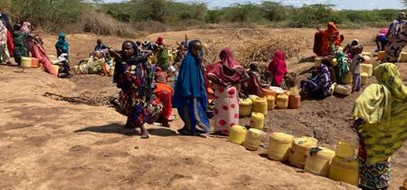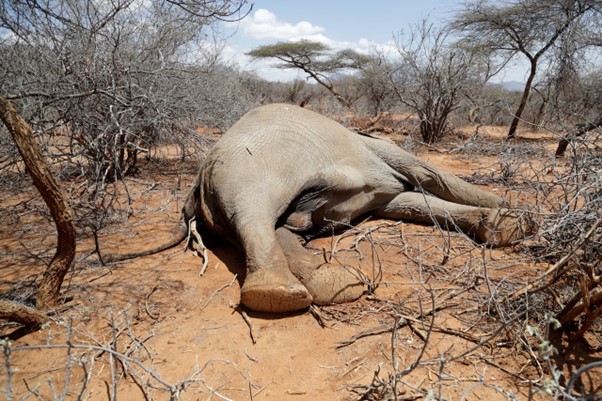
East Africa Regional
Women’s Workshop
Nov 22, 2022
- #Burundi
- #Kenya
- #Rwanda
- #Tanzania
- #Uganda
- #Swedish Municipal Workers Union
- #Syndicat National du Personnel Paramédical et Aide-Soignant
- #Kenya County Government Workers Union
- #Union of Kenya Civil Servants
- #Kenya Electrical Trades and Allied Workers' Union
- #Union of National Research Institutes Staff of Kenya
- #Kenya Union of Commercial, Food and Allied Workers
- #Kenya Universities Staff Union
- #Kenya National Union of Nurses
- #Tanzania Union of Government and Health Employees
- #Researchers, Academicians and Allied Workers Union
- #Tanzania Local Government Workers Union
- #Tanzania Union of Industrial and Commercial Workers
- #Uganda Public Employees Union
- #Uganda Electricity and Allied Workers' Union
- #National Union of Educational Institutions
- #Uganda Nurses and Midwives Union
- #PSI
- #Africa & Arab Countries
- #English-speaking Central, East and West Africa
- #Union to Union
- #National Union of Government & Allied Workers
- #Uganda Local Government Workers' Union
- #Uganda Medical Workers' Union
- #Gender Equality and Equity
- #Kenya Medical Practitioners Pharmacists and Dentists Union
- #Syndicat du Personnel des Etablissements Publics et Privatisés
- #Rwanda Nurses and Midwives Union
- #Syndicat National des Travailleurs de la Santé
- #Uganda Farm & Agro Based Workers' Union
- Read this in:
- en
Under the Kommunal and Union to Union Project, “Organising workers for trade union unity of action, density and quality public services” being held between 2018-2022, women leaders of PSI’s East African affiliates (from Tanzania, Uganda, Kenya, Burundi and Rwanda) met on 16-17 November, at the Imperial Royale Hotel in Kampala, Uganda, for a women's workshop.
The main objectives of the meeting were to:
Appreciate progress made by women in union leadership since the project inception in 2018.
Share challenges faced by women as a result of Covid-19 including increase in care work and GBV.
Assess the impact of climate change on women.

Impact of Covid-19
The submissions from the five countries indicated that women were greatly affected during Covid-19 with unpaid care being on the rise. Additionally, there was an increase in unwanted pregnancies among girls, domestic violence and workplace violence, especially related to night shifts and OSH arrangements at the workplace. Unpaid care work was mainly attributed to the cultural and religious inclinations of the region. In terms of gender-based violence in the world of work, women leaders shared their experiences, and the most significant harassment was related to sexual harassment, including the steps taken by unions to seek redress for the victims. A lot of work still needs to be done to address the issues of violence and harassment, especially in overcoming the evidence provision requirement that makes it difficult for cases to be legally addressed due to challenge in providing evidence beyond reasonable doubt requirements.
Women from the health sector shared how they were affected psychologically, including dealing with mental health problems due to work overload, seeing a number of their patients succumb to the virus and the fact of having to manage a large number of people. They observed that there was no mental health support system for caregivers. Women urged their governments to learn from the Covid-19 outbreak by increasing funding towards public services that are gender responsive, including allocating 15% of the national budget to health.
Climate change impacts
In terms of climate change, the women noted that the current impact of climate change was ravaging a number of families in the region. For instance, in Kenya, the Turkana region was the worst hit, a number of families were going hungry, and a breastfeeding mother died barely two weeks after giving birth due to a lack of food to keep her alive while breast feeding. The same situation was reported in Uganda, Tanzania, Rwanda and Burundi. Some parents had resorted to giving young girls in early marriages as a means of feeding their families. Girls were being forced to drop out of school due to water shortages and to search for firewood, inhibiting their ability to attend schools as they have to join their mothers to look after the family.

It was also observed that over 90% of families were using firewood and charcoal as source of energy for cooking. The main reason of using high-carbon energy sources for cooking was the high cost of clean energy like hydropower and even natural gas. This is not only leading to deforestation, thus increasing the temperature rise due to the lack of forest cover to mitigate the heat; but also the inhalation of carbon emitted by the unclean energy source, leading to airborne diseases, among others.

With agriculture employing over 70% of women, many of them have lost their livelihoods, including those working in horticulture. The high cost of living is also causing strain in the families. Some families have resorted to giving strong alcoholic drinks to their children as a way of supressing the hunger of school-going children.

The women called upon the various governments to ensure a just, accessible, affordable and inclusive transition if the aim of a clean energy transition is to be achieved. Additionally, they noted that it will be important for their governments to avoid concessional green loans, that will increase the debt to GDP ratio, which is already too high in many countries within the region.
Women and leadership
In terms of the progress made in enhancing women capacity to take up leadership and representation in various trade union organs, the countries had registered great strides since 2018, with the creation of women committees, the inclusion of gender-friendly clauses in the CBA including, leave for menstrual period, part-time work for breast feeding mothers; increasing the number of maternity leave days, provision for day care spaces for some workers in some countries. Women representation in leadership positions range from 20-50% across various countries and also within different unions, indicating a marked improvement in terms of women representation compared to five years ago. This achievement was revealed by a number of women occupying some of the unions’ top leadership positions like Chairperson/President, Deputy General Secretaries, Treasurers etc. Young women were also more represented in some of the union structures compared to previous periods.

After deliberating on a number of issues, the women noted the following as areas for lobbying and advocacy in the future:
Advocate for the ratification of C190 by all the countries within the East Africa community
Include the provisions of C190 in CBAs
Advocate for the inclusion of more women in the collective bargaining committees to ensure women issues are well captured and represented in the CBAs.
Undertake counselling and mentoring clubs at shop levels to address the challenges faced by women workers in the world of work.
Engage on discussions and debates on climate change at national levels.

The countries present and their respective unions included:
Tanzania:
Tanzania Union of Government and Health Employees (TUGHE)
Researchers, Academicians and Allied Workers Union (RAAWU)
Tanzania Local Government Workers Union (TALGWU)
Tanzania Union of Industrial and Commercial Workers (TUICO)

Uganda:
National Union of Educational Institutions (NUEI)
Uganda Electricity and Allied Workers Union (UEAWU)
Uganda Public Employees Union (UPEU)
Uganda Medical Workers Union (UMWU)
National Union of Government and Allied Workers (NUGAW)
Uganda Local Government Workers’ Union (ULGWU)
Uganda Nurses and Midwives Union (UNMU)
Uganda Fisheries
Uganda Farm & Agro Based Workers' Union (UFBAW)

Kenya:
Kenya National Union of Nurses (KNUN)
Union of Kenya Civil Servants (UKCS)
Kenya County Government Workers Union (KCGWU)
Union of National Research Institutes Staff of Kenya (UNRISK)
Kenya Medical Practitioners, Pharmacists and Dentists Union (KPMDU)
Kenya Electrical Trades and Allied Workers' Union (KETAWU)
Kenya Union of Commercial, Food and Allied Workers (KUCFAW)
Kenya Universities Staff Union (KUSU)

Burundi :
Syndicat National des Travailleurs de la Santé (SNTS)
Syndicat National du Personnel Paramédical et d'Appui de la Santé Publique (SYNAPA)

Rwanda :
Syndicat du Personnel des Etablissements Publics et Privatisés (SYPEPAR)
Rwanda Nurses and Midwives Union (RNMU)